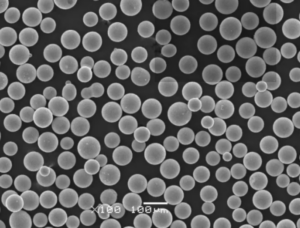Inconel 718 powder is a critical material in advanced industries like aerospace, automotive, energy, and additive manufacturing. This high-performance nickel-chromium alloy powder is known for its outstanding strength, corrosion resistance, and ability to withstand extreme temperatures. Whether you’re an engineer, materials scientist, or someone curious about high-tech materials, this guide will walk you through everything you need to know about Inconel 718 powder.
In this article, we will explore its composition, characteristics, specific applications, different powder models, standards, grades, suppliers, pricing, and much more. By the end, you’ll have a comprehensive understanding of why Inconel 718 powder stands out in the world of high-temperature alloys.
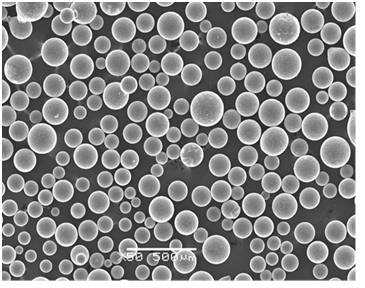
Overview of Inconel 718 Powder
Inconel 718 powder is a nickel-based superalloy, particularly suited for high-stress environments requiring a combination of strength, corrosion resistance, and high-temperature stability. Commonly used in additive manufacturing (3D printing), powder metallurgy, and other precision engineering techniques, Inconel 718 has become a material of choice due to its unique properties.
At the heart of its impressive capabilities are its complex alloy composition, which includes nickel, chromium, iron, molybdenum, niobium, and titanium. These elements work together to create a material that can maintain its integrity in the harshest environments.
Key Composition of Inconel 718 Powder
The composition of Inconel 718 powder is critical to its performance. Each element plays a role in enhancing specific properties such as heat resistance, corrosion protection, and structural integrity. Below is a breakdown of the core elements found in Inconel 718:
| Element | Percentage (%) | Role in Alloy |
|---|---|---|
| Nickel (Ni) | 50-55 | Provides corrosion resistance, stability at high temperatures, and overall strength. |
| Chromium (Cr) | 17-21 | Enhances oxidation resistance, prevents scaling, and supports heat resistance. |
| Iron (Fe) | Remainder | Acts as a balancing element, contributes to the alloy’s general structure. |
| Molybdenum (Mo) | 2.8-3.3 | Increases strength and toughness, especially in high-temperature applications. |
| Niobium (Nb) | 4.75-5.5 | Strengthens alloy via precipitation hardening, crucial for creep resistance. |
| Titanium (Ti) | 0.65-1.15 | Enhances high-temperature performance, supports hardening mechanisms. |
| Cobalt (Co) | 1 max | Adds to heat resistance and magnetic properties (though minimal). |
| Other Elements (Mn, Si, Al, etc.) | <0.5 each | Minor contributions to overall durability and manufacturability. |
How Composition Affects Performance
The high nickel and chromium content provides a formidable defense against oxidation and corrosion, even in extreme temperatures. The addition of niobium and molybdenum enhances creep resistance, making Inconel 718 powder ideal for high-stress environments such as gas turbines, nuclear reactors, and aerospace engines.
Key Characteristics of Inconel 718 Powder
What makes Inconel 718 powder so unique? It’s the combination of mechanical strength, temperature resistance, and durability that sets it apart from other alloys. Below, we delve into the key characteristics that have cemented its place in cutting-edge industries.
1. High Tensile Strength
One of the standout characteristics of Inconel 718 powder is its exceptional tensile strength, which remains stable across a wide range of temperatures. Unlike standard metals that weaken under high temperatures, Inconel 718 maintains structural integrity, making it a top choice for critical components in jet engines and rocket motors.
2. Excellent Corrosion Resistance
Inconel 718 has inherent corrosion resistance, making it suitable for environments exposed to salts, acidic compounds, and high-moisture atmospheres. This resistance prevents degradation and ensures the longevity of parts manufactured from this powder, particularly in maritime, chemical processing, and energy sectors.
3. Heat Resistance
With a melting point exceeding 1300°C (2370°F), Inconel 718 can operate at temperatures that would deform or damage other alloys. Its resistance to oxidation further improves its performance in extreme heat applications.
4. Fatigue Resistance
When used in cyclic applications where components are exposed to repeated stresses, such as turbine blades or automotive parts, Inconel 718 shows a remarkable resistance to fatigue failure. This property extends its usability in rotating machinery and systems requiring long-term durability.
5. Weldability
Though many high-temperature alloys are difficult to weld, Inconel 718 is designed for ease of welding and fabrication, allowing for versatility in its application. It can be welded using common methods like gas tungsten arc welding (GTAW) and electron beam welding (EBW).
6. Creep Resistance
Creep resistance refers to the alloy’s ability to resist slow deformation under sustained high temperatures and stress. Inconel 718 is known for its excellent creep properties, which is why it’s often found in components like gas turbine discs, where prolonged exposure to heat is expected.
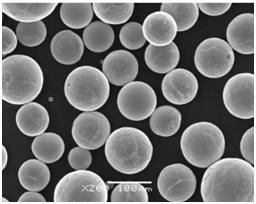
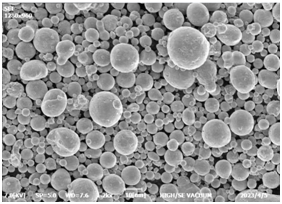
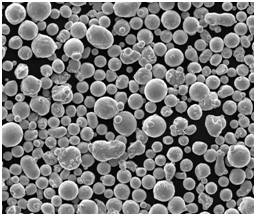

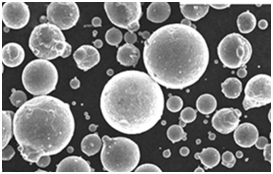

Specific Models of Inconel 718 Powder
There are several manufacturers and models of Inconel 718 powder, each offering slightly different characteristics tailored to specific industrial applications. Below are some common Inconel 718 powder models:
| Model Name | Supplier | Unique Features | Common Applications |
|---|---|---|---|
| Inconel 718 AM | Carpenter Additive | Optimized for additive manufacturing with high flowability. | Aerospace, 3D printing |
| Inconel 718 PBL | Praxair Surface Tech | High purity, used in powder bed fusion and laser sintering. | Energy, automotive |
| Haynes® 718 | Haynes International | Superior weldability, good for traditional casting and forging. | Turbines, aerospace |
| ATI 718™ | ATI Specialty Metals | Offers enhanced heat resistance, ideal for heat shields. | Space exploration, energy |
| Inco 718LC | Special Metals Corp. | Low carbon variant for improved machinability. | Automotive, marine |
| Alloy 718 HD | Höganäs | Heavy-duty variant for extreme stress environments. | Jet engines, turbines |
| Epson 718 Powder | Epson Additive | Fine particle distribution for superior print resolution. | 3D printing, aerospace |
| Powder 718 GP | GE Additive | General-purpose powder for multiple AM processes. | Aerospace, automotive |
| Argon 718 F | Argon Specialty Metals | Fine powder, enhanced for fast solidification in rapid prototyping. | Additive manufacturing |
| Oerlikon 718 OP | Oerlikon Metco | Optimized powder for overpressure sintering applications. | High-pressure systems |
Which Model Should You Choose?
When selecting a specific model of Inconel 718 powder, it’s important to consider factors like application, manufacturing process, and required properties. For instance, Inconel 718 AM is excellent for additive manufacturing due to its flowability, while Inco 718LC may be better suited for machining due to its lower carbon content.
Applications of Inconel 718 Powder
The versatility of Inconel 718 powder makes it valuable across several industries. Here’s a closer look at some common applications:
| Application | How Inconel 718 Excels |
|---|---|
| Aerospace Components | Withstands high temperatures and stress in turbine engines, exhaust systems, and aerospace fasteners. |
| Nuclear Reactors | Offers excellent radiation resistance and stability at high temperatures. |
| Additive Manufacturing (3D Printing) | Used for manufacturing complex, lightweight components with high strength. |
| Automotive Industry | Enhances performance in turbochargers, exhaust systems, and other high-temperature components. |
| Marine Engineering | Corrosion resistance makes it perfect for saltwater environments and underwater systems. |
| Oil & Gas Exploration | High pressure and corrosive resistance are key in downhole components. |
| Chemical Processing | Suitable for reactors, piping, and other equipment exposed to corrosive chemicals and high heat. |
Specifications, Sizes, and Standards of Inconel 718 Powder
To help you make an informed decision, here’s a detailed overview of the specifications, sizes, and standards for Inconel 718 powder:
| Specification | Details |
|---|---|
| Powder Size (Microns) | Typically ranges from 15 µm to 53 µm, depending on the application. |
| Manufacturing Standards | ASTM B637, AMS 5662, ISO 9001, AS9100 (for aerospace use). |
| Packaging Sizes | Available in sizes from 5 kg to 1000 kg, based on supplier offerings. |
| Powder Type | Spherical or irregular, depending on the atomization process used. |
| Purity | 99.9% pure, with minimal impurities to enhance performance. |
Common Standards for Inconel 718 Powder
Inconel 718 powder must meet stringent manufacturing and safety standards to ensure its performance in critical applications. Some of the widely accepted standards include:
- ASTM B637: Specifies the requirements for precipitation-hardened nickel alloys.
- AMS 5662: Standard for nickel-chromium-iron alloys in the aerospace industry.
- ISO 9001: General quality management standards.
- AS9100: Aerospace-specific quality management system.
Suppliers and Pricing of Inconel 718 Powder
Pricing and availability of Inconel 718 powder can vary based on supplier, grade, and order quantity. Below is a general guide to the leading suppliers and pricing structure:
| Supplier Name | Average Price (USD per kg) | Minimum Order Quantity | Lead Time |
|---|---|---|---|
| Carpenter Additive | $150 – $200 | 5 kg | 2-4 weeks |
| Praxair Surface Technologies | $120 – $170 | 10 kg | 3-6 weeks |
| Höganäs | $140 – $180 | 25 kg | 4-8 weeks |
| Oerlikon Metco | $130 – $160 | 20 kg | 3-5 weeks |
| GE Additive | $100 – $140 | 10 kg | 2-4 weeks |
Pros and Cons of Inconel 718 Powder
As with any material, Inconel 718 powder has both advantages and limitations, depending on the specific application.
| Advantages | Limitations |
|---|---|
| High Temperature Stability: Can withstand extreme heat without losing integrity. | Expensive: High cost compared to other alloys like stainless steel. |
| Corrosion Resistance: Stands up well in harsh chemical environments. | Difficult Machinability: Requires special tooling and techniques. |
| Creep and Fatigue Resistance: Excellent for components under constant stress. | Limited Forming Abilities: Cold-forming can be challenging. |
| Additive Manufacturing Friendly: Flowable and weldable, ideal for 3D printing. | Heavy Material: Not ideal for lightweight applications compared to titanium. |
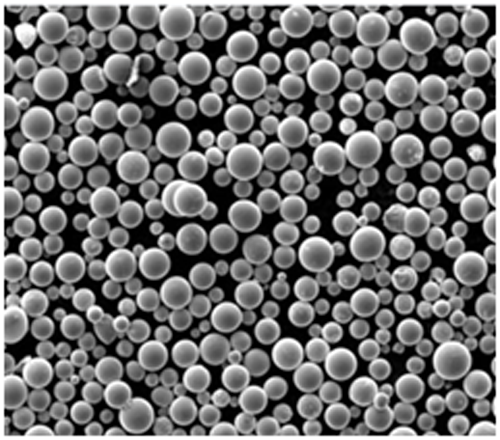
FAQ
| Question | Answer |
|---|---|
| What industries use Inconel 718 powder? | Aerospace, automotive, oil & gas, and additive manufacturing industries heavily use Inconel 718 powder. |
| Is Inconel 718 easy to machine? | It’s not the easiest material to machine due to its hardness, but proper tools and techniques can improve machinability. |
| What temperatures can Inconel 718 withstand? | It can handle temperatures up to 1300°C (2370°F), making it ideal for high-heat environments. |
| Why is Inconel 718 powder preferred in additive manufacturing? | It has excellent flowability, is highly weldable, and offers strength at elevated temperatures, which makes it ideal for 3D printing complex parts. |
| How much does Inconel 718 powder cost? | Prices typically range between $100 and $200 per kg, depending on the supplier and order size. |
Conclusion
Inconel 718 powder is undoubtedly one of the most versatile and high-performing materials used in high-tech industries today. From its superior temperature resistance to its corrosion-fighting capabilities, it’s clear why this alloy is a favorite in demanding applications such as aerospace, nuclear reactors, and additive manufacturing.
By understanding its composition, properties, applications, and different models available, you can make informed decisions on how best to utilize this powerful alloy. Whether you are considering it for 3D printing, machining, or extreme environment applications, Inconel 718 powder offers reliability and performance that few other materials can match.
If you’re looking to dive deeper into the world of materials science or want to source Inconel 718 for your next project, there’s a world of possibilities waiting.
